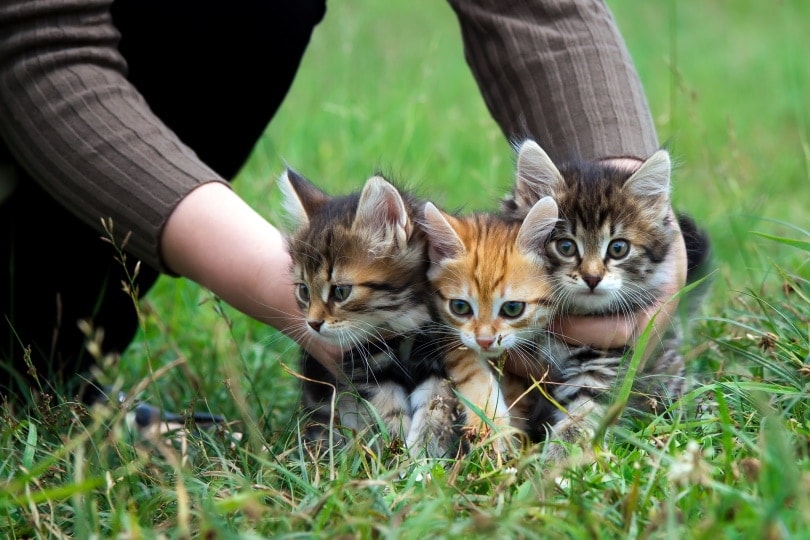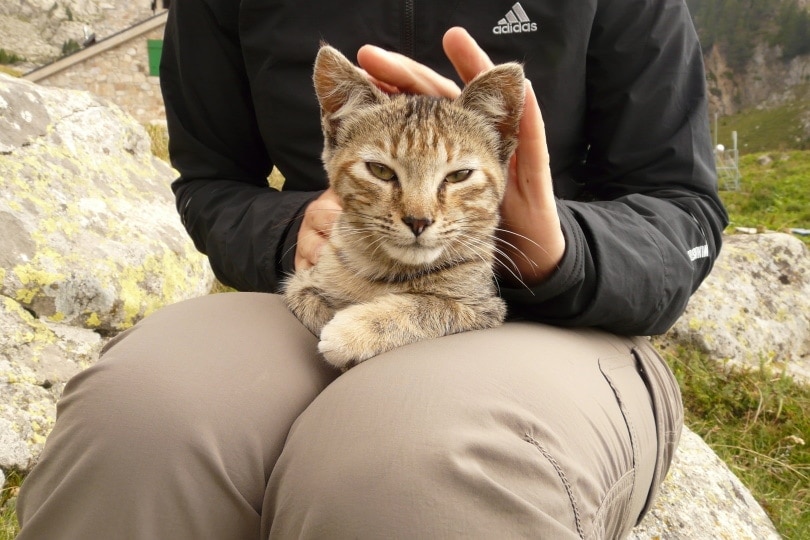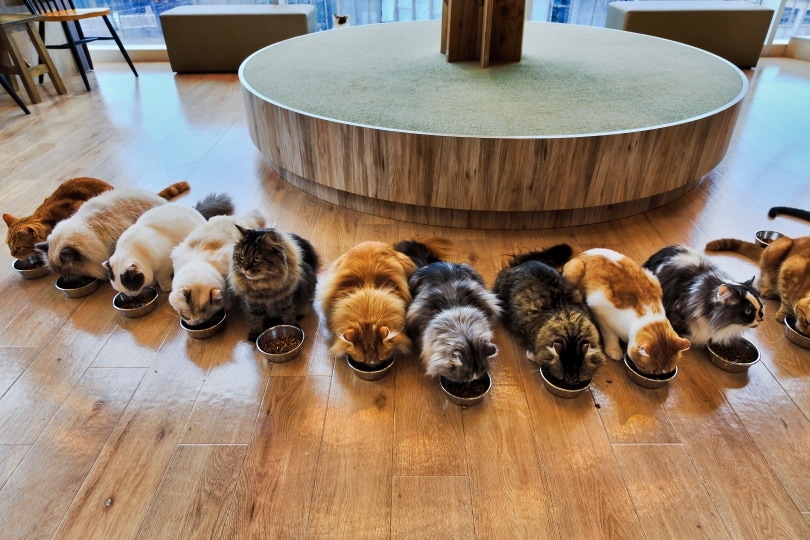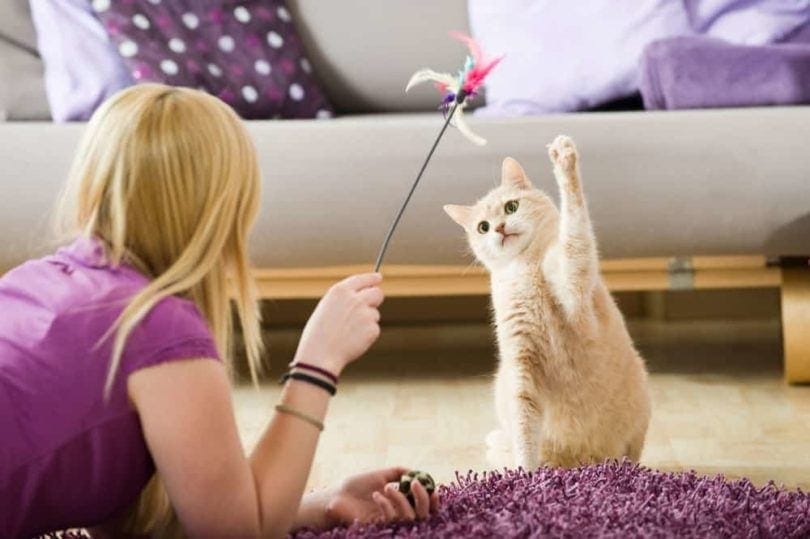How Many Cats Can You Own in Virginia? 2024 Update

Updated on

While many pet parents are the proud, loving parents of multiple pets, many states place restrictions on the number of pets present in a single household. Before buying every cat you see in your area, check your county laws to see how many cats you can legally own in your area. For example in Virginia it depends on the county you live in. Read on for more details.
Virginia State Laws
Virginia’s state laws are intentionally vague. Cat ownership laws are covered in “VA – Licenses – § 3.2-65241. Unlicensed dogs prohibited; ordinances for licensing cats” which states that “… Concerning cats, the governing body of any county, city or town may, by local ordinance, prohibit any person from owning a cat four months or older within such locality unless such cat is licensed.” Thus, county-specific laws for cat ownership would need to be referenced as to how many you can own.
For instance, Fairfax County does not limit the number of cats you can own in any way, shape, or form. Conversely, Waynesboro limits the number of cats you can hold to five cats above the age of 4 months. Roanoake County allows up to six cats, but at least four must be fixed. Henrico allows just four pets of adult age in total in a residence. Newport County doesn’t limit the number of cats you can own, but all cats must be licensed with the county and wear a tag with their license number on it.
Due to the nature of Virginia’s laws, it’s best to check your county’s specific laws before buying any animals. Cats may or may not require a license, and your county may or may not have a limit on the number of animals you can have in your home.

Animal Hoarding
These laws are meant to address and quell cases of animal hoarding. Animal hoarding is when a person begins to collect excessive numbers of living animals beyond what they can care for. In many animal hoarding cases, the person is unaware that the animals are going without the basics that they need to thrive. Often, they see themselves as aiding animals who would otherwise be homeless.
Animal hoarding is taken very seriously in Virginia. While Virginia’s law doesn’t seek to punish those who hoard inanimate objects in their homes, the laws criminalize animal hoardings as a form of animal cruelty.
Notable Animal Hoarding Cases in Virginia
However, the Virginian Pilot reports that prosecution is rare and that jail time is considered a last resort for animal hoarding cases. One of the more notable animal hoarding cases resulted in just 24 days of jail time after the defendant, Lisa Hokaj-Ross, was arrested multiple times and sick and dead animals had to be removed from her home on numerous occasions.
While the Hokaj-Ross case was an extreme situation of animal hoarding, companion animal limit laws are meant to combat these problems before they arise. Animal licensing statutes are intended to force prospective owners to declare themselves to the government and law enforcement before taking animals into their care.
However, since animal hoarding is considered a criminal offense, loved ones of the hoarder may seek to shield the hoarder from repercussions and help them hide their animal hoarding. There aren’t many studies on the root causes of animal hoarding. The hoarders themselves tend to do their best to hide their problems; they may be deeply in denial about the situation.

Final Thoughts
Before bringing any animals into your life, check your local ordinances to ensure that your ownership will be kosher within the laws. Laws vary by state and can even get as specific as a county law. Even if something is legal statewide, it may be more restricted in your particular county, and it’s best to be safe rather than sorry!
Related Reads:
Featured Image Credit: yanikap, Shutterstock












